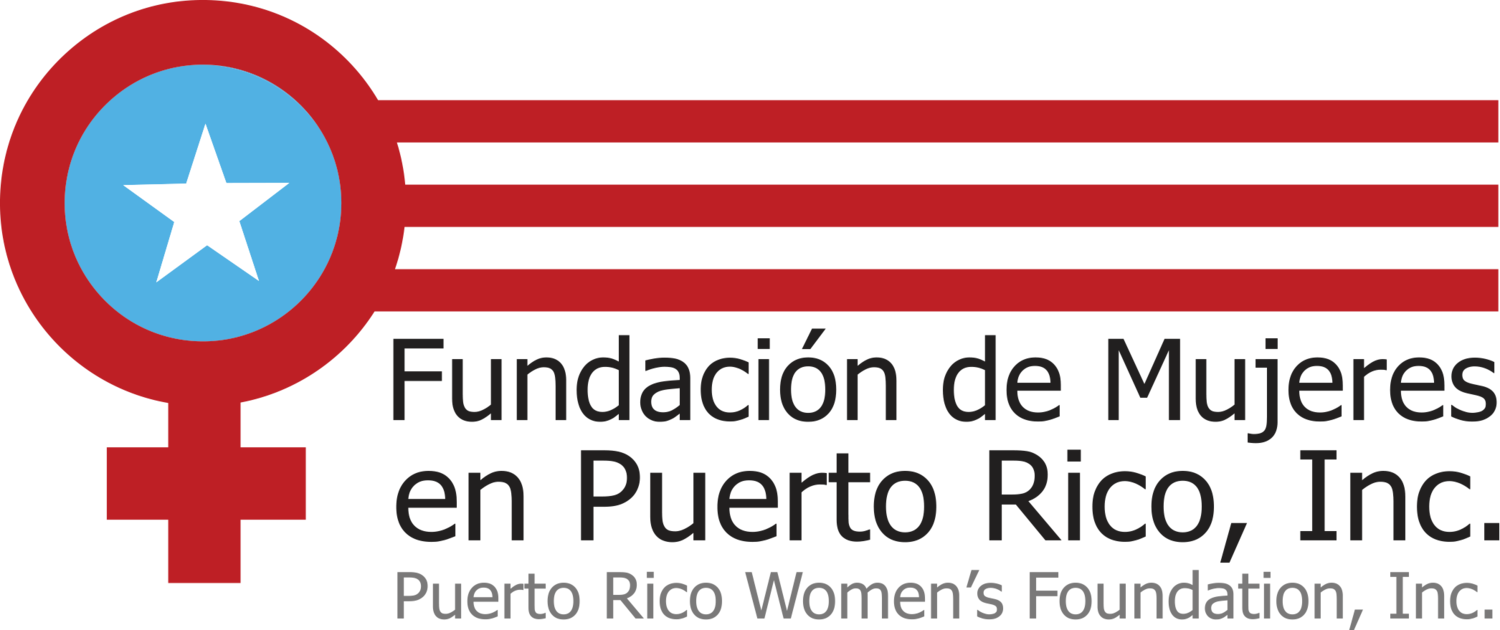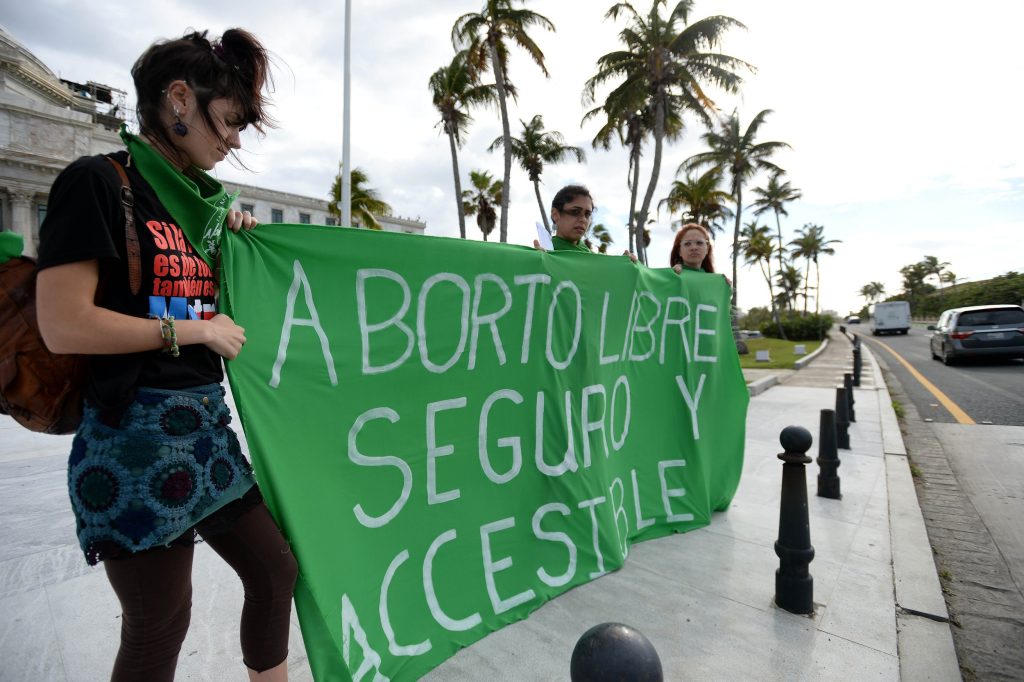The possibility of deciding whether or not to have children, when and under what conditions is a human right in which reproductive justice is framed.
However, reproductive justice has become more of a privilege in everyday life.
The topic prompted the conversation entitled Reproductive Justice: Past, Present and Future, which was presented Thursday, March 24, 2022 by the Puerto Rico Women’s Foundation and the Friends of Puerto Rico Initiative.
The panelists were Ana María García, director of the film La Operación (1982); Maritza Arrastía, co-founder of the Committee Against Sterilization Abuse (CESA); Fabiola Carrión, Director of Sexual and Reproductive Health of the National Health Law Program, and Alondra del Mar, of Aborto Libre Puerto Rico.
Digna Sánchez, who is part of our Board and co-president of the Friends of Puerto Rico Initiative, was the moderator.
From the testimonies and analysis of the four feminists, it can be deduced that denunciation, organization, and collective struggle have been the forms of resistance of women in Puerto Rico and in the United States in the face of public policies and government efforts to control their reproductive rights.
Past
The outrage and experimentation
Filmmaker Ana María García recounted how she used her work as a way of denouncing the violation of sexual and reproductive rights of poor women and working class of Puerto Rico. First, through mass sterilization and, later, with the clinical experimentation of the contraceptive pill on Puerto Rican females.
By the 1970s, almost 36% of women in the Caribbean archipelago – with an average age of 26 years – had been sterilized without being fully aware of what they were undergoing. It was, according to García in La Operación, a population reduction plan orchestrated from the desk of military governor Blanton Winship based on eugenics–a racist and elitist philosophy that maintains that poor and sick people should not procreate–. Puerto Rico thus became the country with the highest rate of female sterilization in the world.
Forced sterilization was also a strategy that was implemented at Lincoln Public Hospital in the South Bronx, in New York, to control African-American, Puerto Rican and indigenous populations. Faced with this outrage, the Committee Against Sterilization Abuse (CESA) arose.
“Usually, one does not remember the type of reproductive terrorism in which women lived at the time.” shared Maritza Arrastía. “Being pregnant in the 70’s could mean facing death”. With these conditions, feminists who were aware of race and class, and community sectors, led efforts and educational campaigns to approve regulations for informed consent before carrying out the so-called “operation”. With these campaigns the goal of the feminists was that if women were to go through with “the procedure” the decision would be a conscious and educated one.
CESA’s experience of organized work and political education is a benchmark for the struggle currently being waged for the right to abortion.
Present
Public health crisis and the threat of the derogation to the voluntary termination of pregnancy
It is an untimely and unnecessary pressure that becomes even more evident with the great influence of the conservative right that has been inserted in the Supreme Court of the United States and state legislatures. The highest court is expected to issue a decision in Dobbs vs Jackson Women’s Health Organization, which could further limit or even repeal, the right to voluntary termination of a pregnancy.
“Those of us who lived in the time when there was no right to abortion, remember the impact of many women dying trying to end an unwanted pregnancy,” shared moderator Digna Sánchez.
As a colony of the United States, women and pregnant people in Puerto Rico will be impacted directly by this decision. Although, Puerto Rico has its own jurisprudence on the subject, a repeal of the 1973 Roe vs Wade, would mean this right could be automatically annulled in the Caribbean archipelago.
To explain how the consequences of anti-rights activism are seen in the United States, Fabiola Carrión placed her discussion within the framework of reproductive justice, created in 1994 by black women leaders of social justice.
“Reproductive justice means that all people have the social, political, and economic power and resources to make healthy decisions for themselves and their communities when it concerns about their genders, bodies, sexuality, and families,” she summarized.
Roe v Wade, which proclaims the right to abortion through the constitutional right to privacy, was an emblematic advance in the cause for reproductive justice, but the subsequent case Planned Parenthood of Southeastern Pennsylvania vs Casey in 1992 established a new standard on what is “undue burden” in the limitations that states could establish when regulating abortion, and thus opened the door to newer limitations.
“This is important because the court and the states rely on this case to issue regulations at state level and to cut off the right to abortion little by little,” Carrión established.
Since 2010, Carrión mentioned, states have imposed more than 600 legal restrictions to prevent abortion. “These restrictions are part of a public health crisis. There is a fairly strong connection between restricting abortion and causing maternal morbidity and mortality. Not coincidentally, the states that restrict abortion rights the most are also the states with the highest morbidity and mortality rates. “And of course, the women directly affected by these regulations are poor women, black women, indigenous women and Hispanic women,” Carrión said.
Some of the limitations for example, allow abortions only in very early gestational stages when most people do not even know they are pregnant, require unnecessary ultrasounds and impose absurd requirements on the clinics that offer the service.
The Texas law – known as the Heartbeat Act – in effect since September 1st, 2021, prohibits abortion after six weeks of gestation. This law also allows people to sue private citizens who aided in the abortion after this period. It also does not account for pregnancies due to rapes nor incest.
With Dobbs v Jackson Women’s Health Organization, the Supreme Court of the United States reviews whether a Mississippi state law to ban abortion after 11 weeks of gestation is upheld.
“Unfortunately, given the questions that were asked on December 1st, the day the Supreme Court hearing took place, we believe that the court will rule in favor of the state of Mississippi,” Carrión predicted. “The ultraconservative force wants absolutely everything. They want to overturn Roe vs Wade completely.” If Roe vs Wade is annulled, 26 states would automatically not have access to abortion, illustrated Carrión.
Faced with the threat that is emerging as a very real possibility, Carrión wanted to highlight something hopeful. Among these, the bill for the Women’s Health Protection Act to protect a person’s ability to determine whether to continue or terminate their pregnancy, and also to protect the health care provider’s ability to extend their abortion services. Over the counter/ next day abortion pills are also an alternative for a safe abortion, however, they have been highly restricted.
Future
Actions and hope for women in the midst of struggle
Carrión presented resources to educate oneself about the rule of law and proposed the following actions: talking about the issue outside of stigmatization and creating funds for women who need abortions, as ways to deal with these possible threats.
Alondra del Mar, from Aborto Libre Puerto Rico, emphasized the importance of class and race to understand the intended scope of the Conservative right’s policies on all female bodies.
The slogan of Aborto Libre Puerto Rico has been that legal abortion is not enough, because in most cases, it is not accessible. The interconnectivity of all the abortion questions and answers is what must be addressed. Puerto Rico has only five abortion clinics and four of these are located in the metropolitan area. Mobility and lack of financial resources to pay for the procedure are also huge obstacles.
“It is absolutely a matter of privilege.”
Alondra del Mar does not believe that the decision in Dobbs vs Jackson Women’s Health Organization is going to mean the repeal of Roe vs Wade, she warns about the multiple threats that the ultra-conservative forces manage against the established right to an abortion.
In Puerto Rico, there are over a dozen bills that seek to further limit the possibility of voluntarily ending a pregnancy.

